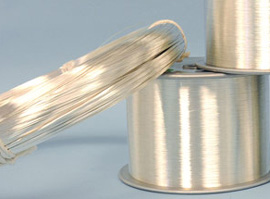 Beryllium copper is a highly versatile material with a wide range of applications. It is important to recognize that different types of beryllium copper alloys exist, each with unique properties and characteristics. Choosing the right alloy is integral to optimal performance and increased safety. Two essential types of alloys are high-strength beryllium copper alloys and high-conductivity beryllium copper alloys. If you have any further questions, you should not hesitate to call us.
Beryllium copper is a highly versatile material with a wide range of applications. It is important to recognize that different types of beryllium copper alloys exist, each with unique properties and characteristics. Choosing the right alloy is integral to optimal performance and increased safety. Two essential types of alloys are high-strength beryllium copper alloys and high-conductivity beryllium copper alloys. If you have any further questions, you should not hesitate to call us.
High-Strength Beryllium Copper Alloys
- Composition: These alloys typically contain 1.6-2% beryllium when wrought and as much as 2.7% beryllium when cast. They also often include about 0.3% cobalt.
- UNS Designation: The wrought alloys fall under the Unified Numbering System (UNS) as C17200 to C17400, while the cast versions are designated as C82000 to C82800.
- Age Hardening: The alloys gain their remarkable strength from a process known as age hardening. In this procedure, the annealed metal undergoes rapid cooling, resulting in a solid-state solution of beryllium in copper.
- Thermal Treatment: After rapid cooling, the alloy is kept between 200-460°C for at least one hour. This results in the formation of metastable beryllide crystals within the copper matrix.
- Thermal Conductivity: These alloys possess thermal conductivities that are intermediate between steel (approximately 20-50 W/m·K) and aluminum (approximately 205 W/m·K).
- Over-Aging: It’s essential to avoid keeping the alloy at elevated temperatures for too long, as over-aging may reduce the concentration of beryllide crystals, decreasing mechanical strength.
High Conductivity Beryllium Copper Alloys
- Composition: These alloys typically contain as much as 0.7% beryllium and include small amounts of nickel and cobalt to improve their properties.
- Thermal Conductivity: The thermal conductivity of these alloys surpasses that of aluminum (approximately 205 W/m·K) and is just below that of pure copper (approximately 398 W/m·K).
- Applications: These alloys are often employed in electrical contacts and other components requiring efficient thermal and electrical conductivity due to their high electrical and thermal conductivities.
You should call our team for help deciding the best beryllium copper alloy. Getting the right alloy for a specific job is essential for performance and safety, so let us help you solve your beryllium copper wire problems.

 Technical Data
Technical Data


